Financial Exploitation

What is financial exploitation?
Financial exploitation involves criminals approaching children and young people online through gaming and social media platforms, and in places like shops and cashpoints with offers of quick cash and fake job opportunities, only to use and control their bank accounts to commit fraud and launder money from organised crime.
This form of exploitation can take many forms, it can involve fraud and money laundering. It can happen both online and offline in places like:
- at cashpoints, where young people are approached by exploiters, who know the young person has a bank account that can be accessed
- on social media and gaming platforms, where young people are sent fake job adverts or asked to share their bank details
- through ‘relationships’, including parents, carers, and wider family members and when young people are made to believe they’re in a consensual romantic relationship and manipulated into holding money on behalf of their partners
- in retail settings, where young people are made to return high-value goods with stolen receipts or to shoplift.
It can involve all forms of currency including:
- cryptocurrency
- bank accounts
- travel cards
- gaming currencies like skins and credits
- holding accounts
- material goods
The Children’s Society has shared a recent blog post highlighting the risks of financial exploitation and children being tricked into opening criminal bank accounts: Children Forced Into Opening Criminal Bank Accounts | The Children’s Society (childrenssociety.org.uk)
Signs of financial exploitation:
- Large amounts of money coming into and out of bank or Paypal accounts
with small sums left in the account as a payment. - Use of social media accounts to advertise products or money-making
opportunities. - New or expensive items, or more money than expected, although young people
can also be rewarded with things like gaming credits that are not visible. - The use of new and unusual phrases e.g. ‘squaring’ or ‘smurfing’.
Language matters:
Common language linked to the financial exploitation of young people is ‘money muling’ however it is important to remember that young people who are victims of financial exploitation are victims of abuse and it is important to never use dehumanising language or any language that would minimise the risk they are subjected to.
The term ‘money muling’ focuses on the child’s actions and dehumanises them. It ignores the complexity of the child’s situation and may imply consent.
More information about the use of language when talking about victims of child exploitation can be found here: NYSCP (safeguardingchildren.co.uk)
Where to find out more:
The Children’s Society: What is Financial Exploitation? | The Children’s Society (childrenssociety.org.uk)
The Home Office released in March 2024 the policy paper: Money laundering-linked financial exploitation: guidance for frontline professionals This guidance is aimed at frontline professionals and organisations who work with children and adults at risk. The guidance is intended to enable practitioners to recognise and respond to financial exploitation linked to money laundering so that victims, and potential victims, can get the protection and support they need.
Money Mules – If it sounds too good to be true, it probably is.: is a website in collaboration with UK finance and Cifas. It aims to inform students and young people about the risks of giving out their bank details and deter them from becoming victims of financial exploitation.
The Children’s Society recently delivered a learning session in North Yorkshire looking at financial Exploitation: The course slides can be accessed below:
Page Reviewed: July 2025


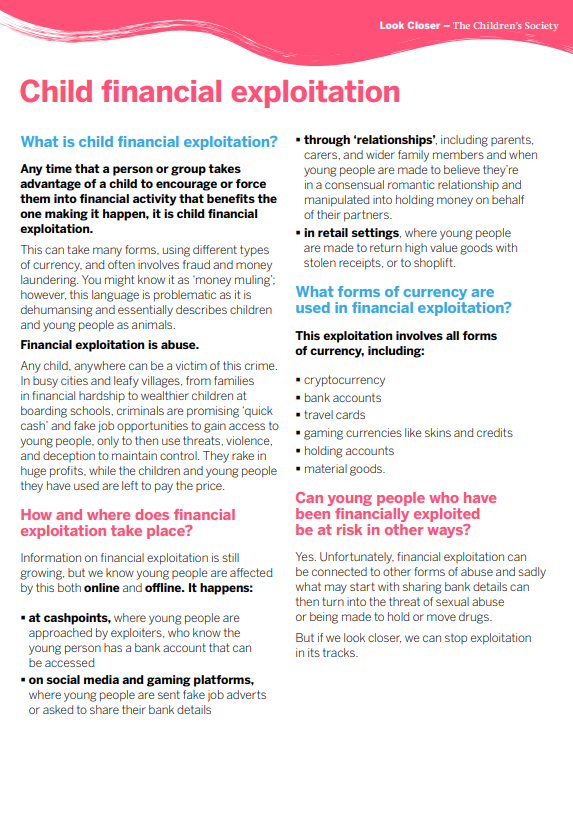
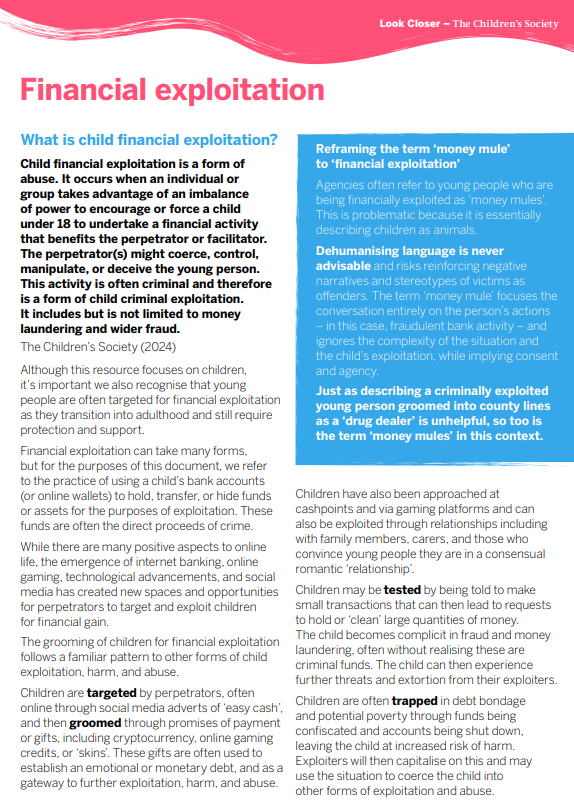
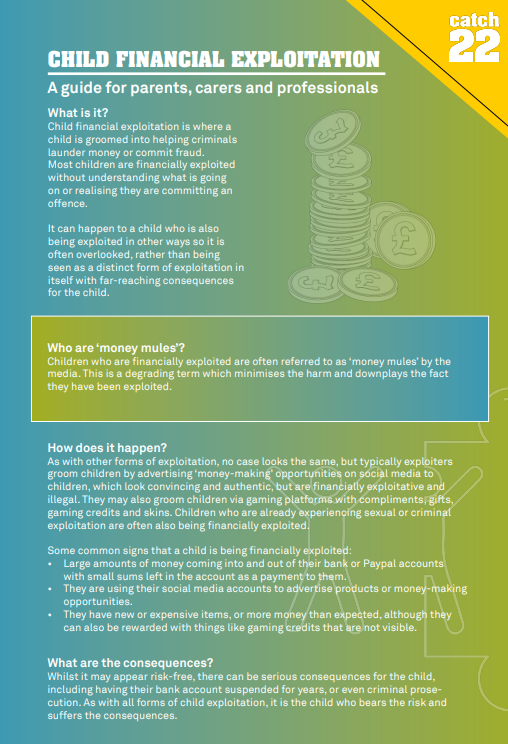

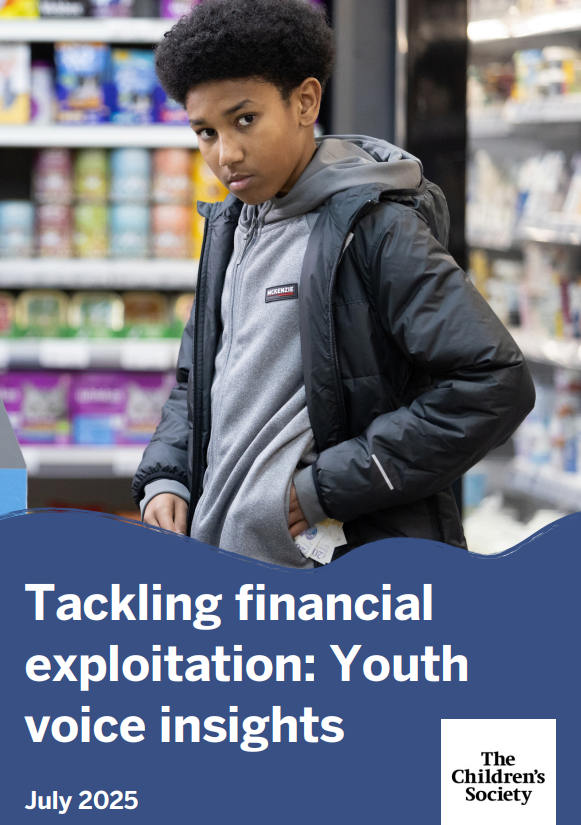
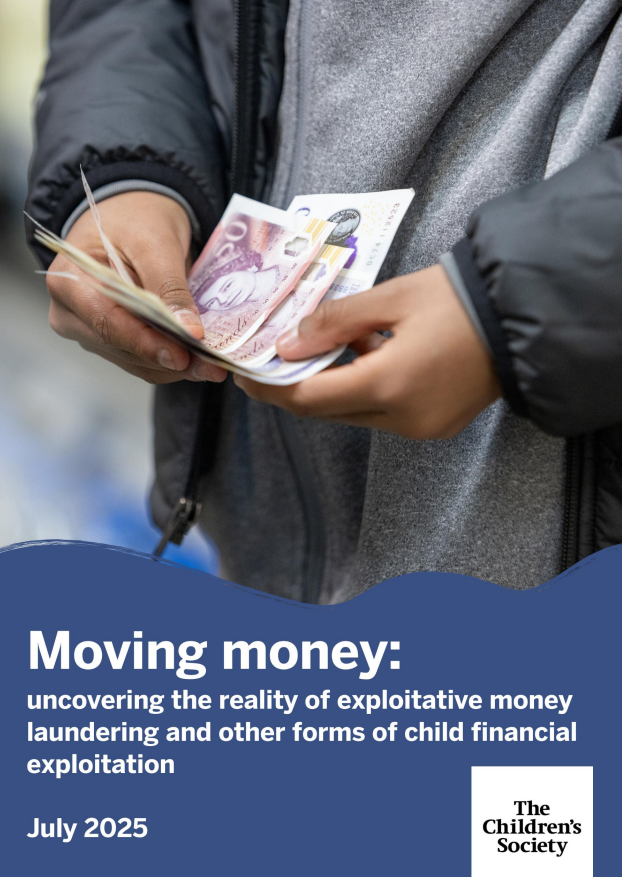


 View all our news
View all our news